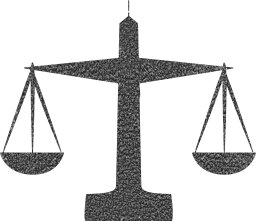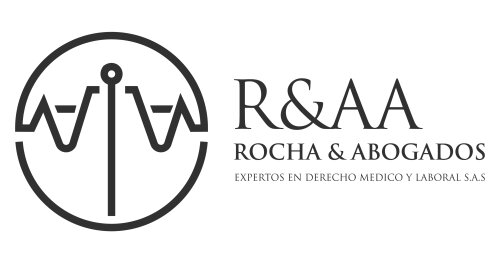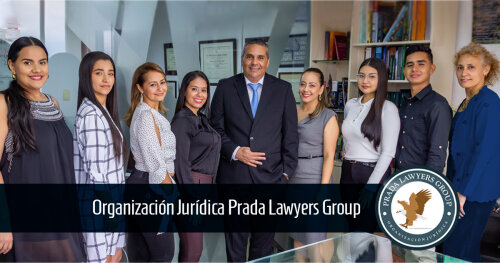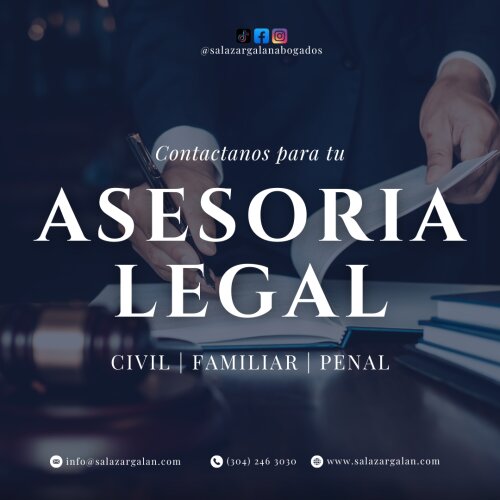Best Whistleblower & Qui Tam Lawyers in Colombia
Share your needs with us, get contacted by law firms.
Free. Takes 2 min.
Or refine your search by selecting a city:
List of the best lawyers in Colombia
About Whistleblower & Qui Tam Law in Colombia:
Whistleblower & Qui Tam laws in Colombia aim to protect individuals who report misconduct, fraud, or illegal activities within an organization. These laws encourage whistleblowers to come forward by offering legal protections and potential rewards for exposing wrongdoing.
Why You May Need a Lawyer:
If you have information about fraud or misconduct in your workplace and are considering blowing the whistle, it is essential to seek legal advice. A lawyer can help you navigate the complex legal process, protect your rights, and ensure that you are eligible for any potential rewards.
Local Laws Overview:
In Colombia, whistleblower protection is regulated by Law 1474 of 2011. This law establishes mechanisms to prevent corruption, protect whistleblowers, and promote transparency in public and private organizations. Whistleblowers in Colombia can report wrongdoing to government agencies or use Qui Tam provisions to file lawsuits on behalf of the government.
Frequently Asked Questions:
1. What is the definition of a whistleblower in Colombia?
A whistleblower in Colombia is an individual who reports corruption, fraud, or illegal activities within an organization.
2. Are whistleblowers protected by law in Colombia?
Yes, whistleblowers in Colombia are protected by Law 1474 of 2011, which provides legal protections against retaliation.
3. What types of misconduct can be reported by whistleblowers in Colombia?
Whistleblowers in Colombia can report various forms of misconduct, including corruption, fraud, waste, abuse of power, and violations of the law.
4. Can whistleblowers receive rewards in Colombia?
Yes, whistleblowers in Colombia may be eligible for rewards under Qui Tam provisions if their report leads to successful legal action against the wrongdoer.
5. How can I report misconduct in Colombia?
You can report misconduct in Colombia to government agencies or file a Qui Tam lawsuit with the assistance of a lawyer.
6. What protections do whistleblowers have in Colombia?
Whistleblowers in Colombia are protected from retaliation, such as termination, demotion, or harassment, for reporting misconduct.
7. Can whistleblowers remain anonymous in Colombia?
Yes, whistleblowers in Colombia have the right to remain anonymous when reporting misconduct, although this may vary depending on the circumstances.
8. Is legal representation necessary for whistleblowers in Colombia?
It is highly recommended for whistleblowers in Colombia to seek legal representation to ensure their rights are protected and to navigate the legal process effectively.
9. What are the potential risks of whistleblowing in Colombia?
Whistleblowers in Colombia may face risks such as retaliation, stigma, and potential legal challenges. It is essential to weigh these risks before coming forward.
10. How can a lawyer help me as a whistleblower in Colombia?
A lawyer can provide legal advice, protect your rights, help you navigate the legal process, and advocate on your behalf to ensure your report is handled appropriately.
Additional Resources:
For more information on whistleblower protection and Qui Tam laws in Colombia, you can contact the Colombian Office of the Comptroller General or seek assistance from organizations such as Transparency International Colombia.
Next Steps:
If you believe you have information about misconduct or fraud and are considering blowing the whistle in Colombia, it is crucial to seek legal advice as soon as possible. A lawyer specializing in whistleblower protection can guide you through the process and help you protect your rights.
Lawzana helps you find the best lawyers and law firms in Colombia through a curated and pre-screened list of qualified legal professionals. Our platform offers rankings and detailed profiles of attorneys and law firms, allowing you to compare based on practice areas, including Whistleblower & Qui Tam, experience, and client feedback.
Each profile includes a description of the firm's areas of practice, client reviews, team members and partners, year of establishment, spoken languages, office locations, contact information, social media presence, and any published articles or resources. Most firms on our platform speak English and are experienced in both local and international legal matters.
Get a quote from top-rated law firms in Colombia — quickly, securely, and without unnecessary hassle.
Disclaimer:
The information provided on this page is for general informational purposes only and does not constitute legal advice. While we strive to ensure the accuracy and relevance of the content, legal information may change over time, and interpretations of the law can vary. You should always consult with a qualified legal professional for advice specific to your situation.
We disclaim all liability for actions taken or not taken based on the content of this page. If you believe any information is incorrect or outdated, please contact us, and we will review and update it where appropriate.
Browse whistleblower & qui tam law firms by city in Colombia
Refine your search by selecting a city.















